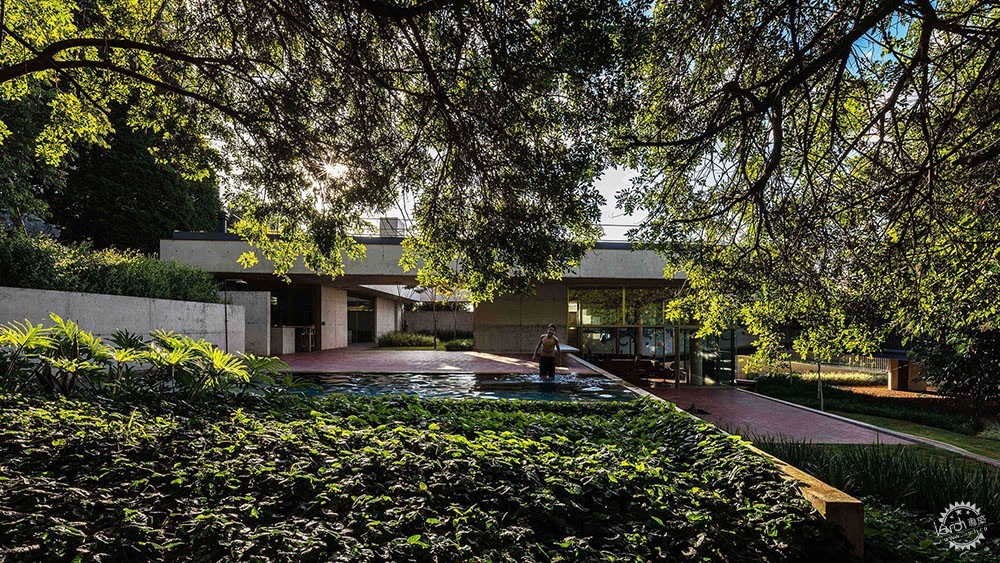
圣保罗Casa em Cotia住宅
Casa em Cotia in São Paulo features a snaking pond and a rooftop garden
由专筑网王帅,邢子编译
斜坡式的人行道和楼梯就像一幅“连贯的图画”,穿过巴西这座混凝土房屋的台阶,道路的终点是屋顶上茂盛的花园。这座住宅的设计出自Una Arquitetos建筑事务所。
A ramped walkway and staircases lead like a "continuous drawing" through the stepped levels of this concrete house in Brazil, designed by Una Arquitetos, to end at a lush garden on its roof.

这座住宅名为“他们的Cotia房子”或“Cotia之家”,住宅的命名来源于其坐落的城市圣保罗。
当地Una Arquitetos建筑事务所在一片森林附近完成了这座建筑,2600平方米的空地让团队在设计上有足够的自由发挥空间。设计的主要挑战是适应场地的坡度,该事务所称这是该地区建筑的典型特征。
Casa em Cotia, or House in Cotia, is a family residence named after the São Paulo municipality where it is located.
Locally based Una Arquitetos completed the property for a vast 2,600-square-metre clearing near a forest, giving the team plenty of freedom with the design. The main challenge was to accommodate the site's slope, which the studio says is a typical feature of the area.

作为回应,设计师将730平方米的混凝土房屋分成了三个部分,并且将它们置于不同的层次上。
巨大的窗户、柱子和悬垂的体量不禁让人联想到巴西的现代主义风格——该风格在20世纪早期到中期曾被建筑师Lucio Costa和Oscar Niemeyer在该地区使用。
In response, the practice separated the 730-square-metre home into three concrete blocks set at different levels across the site.
Large windows, columns and overhanging volumes are all reminiscent of Brazilian modernism – the style adapted for the region by architects like Lucio Costa and Oscar Niemeyer during the early-to-mid 20th century.
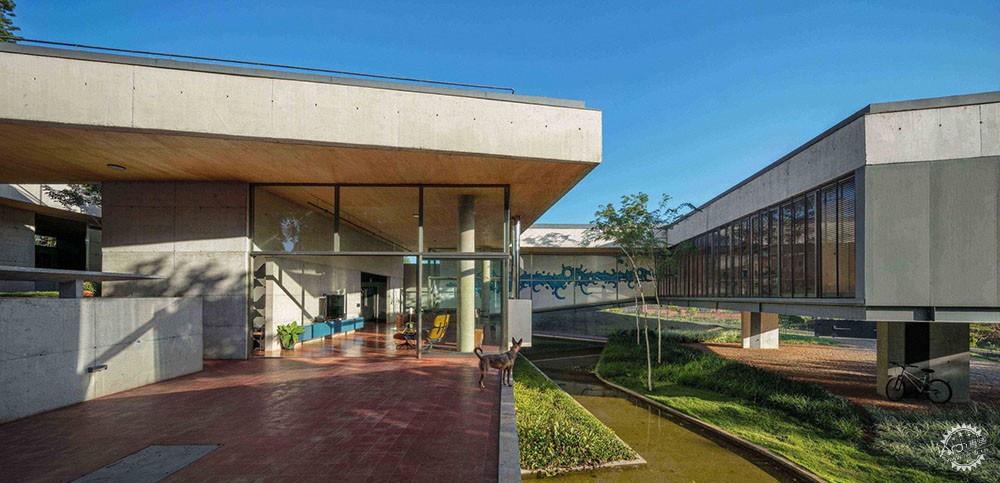
一个45米长的屋顶作为统一的元素,放置在楼顶上。屋顶上覆盖的沙土和草木和周围林地的色调相互辉映。
A 45-metre-long roof placed on top of the blocks acts a unifying element, with its grassy and sandy covering matching the tones of the woodland surrounding.
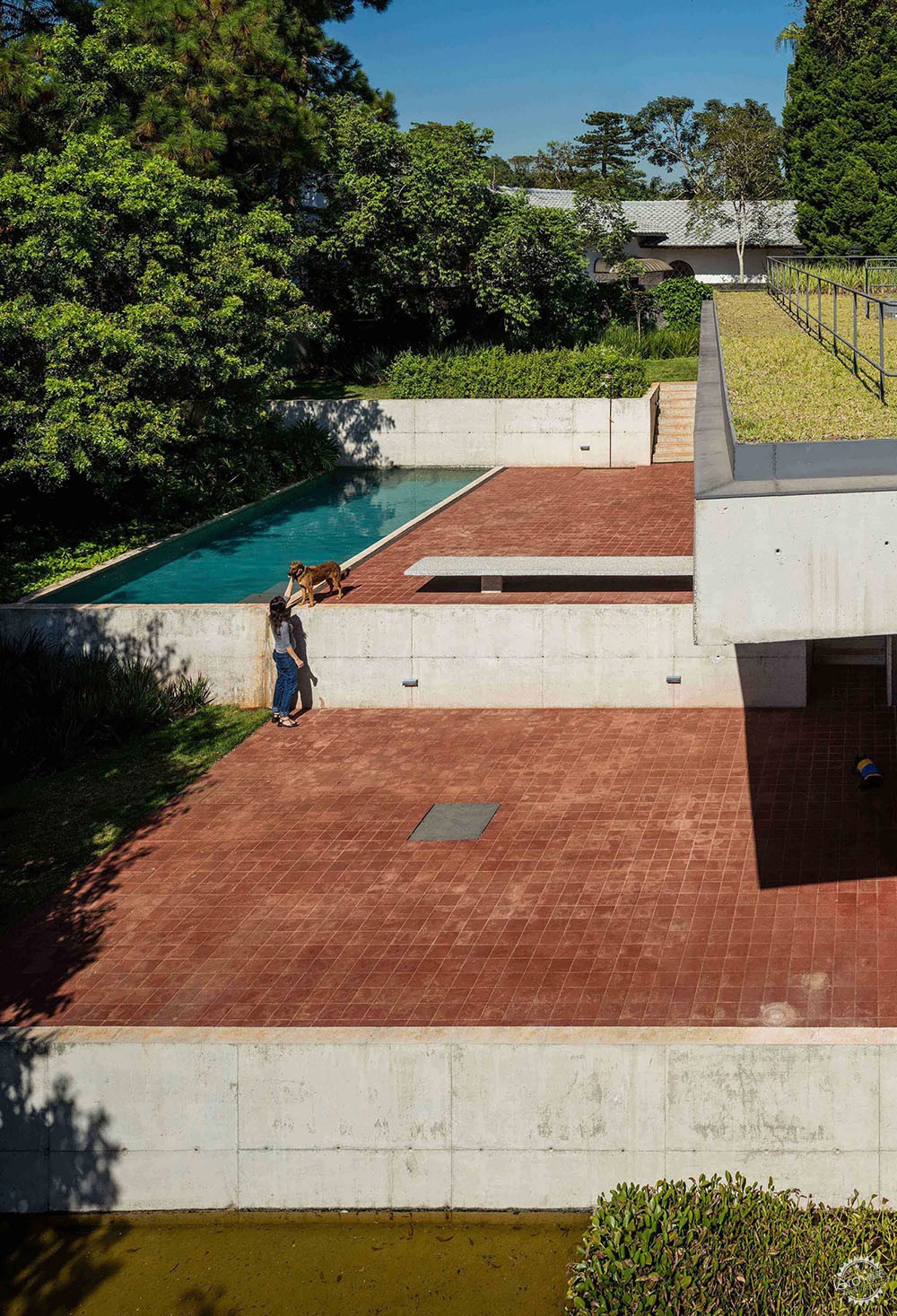
屋顶上的两个大的缺口将上面庭院的阳光带入房子的四个层次上。每一层都由一系列的坡道和楼梯连接。
Two large holes puncture the roof, above courtyards that bring natural light into the four levels of the house. A series of ramps and stairs are used to connect each floor.
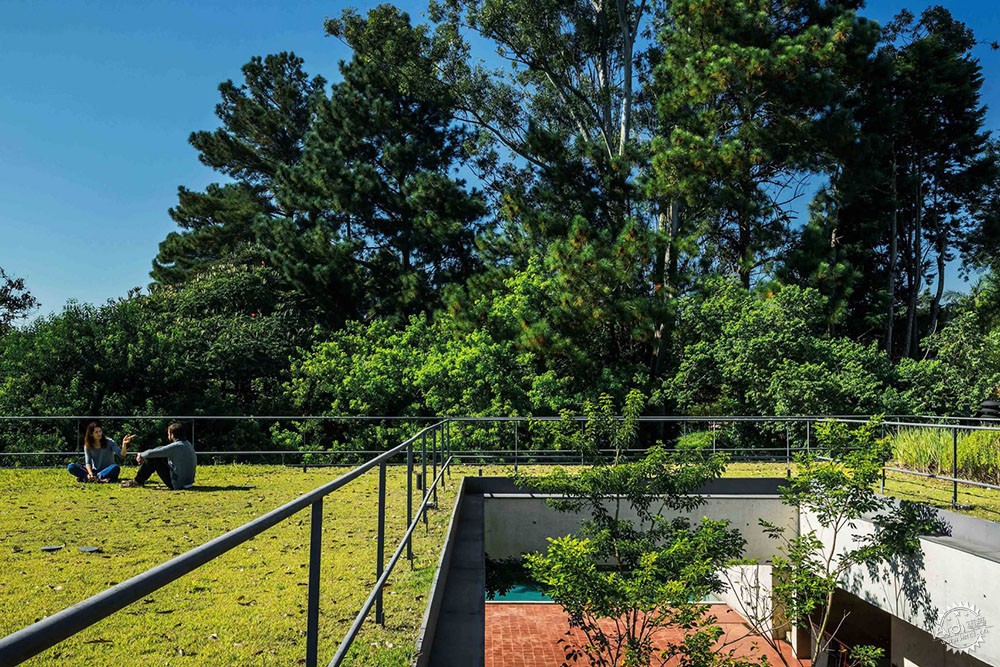
Una Arquitetos建筑事务所在项目描述中解释到:“房子的设计应该考虑到对于家庭关系的保护,从而让孩子们能够拥抱童年、享受日常生活,并建立衡量世界的思维尺度。”
该事务所还说:“长廊非常特别,人们漫步在上面,那里成为一个冥想的地方。既然如此,一条路径就像一幅连续的图画,带有坡度的长廊起起伏伏,连接着所有的空间。”
"Designing a house always presumes a commitment to sheltering family relationships," said Una Arquitetos in a project description. "Embracing childhood, everyday life, establishing scales of measures to the world."
"This one particularly, seeks to reinforce the walking, the promenade, as a way to conceive the place," the studio continued. "Being so, a path is completed as a continuous drawing, connecting all spaces, going up and down the slope, without determining if one is diving or submerging."
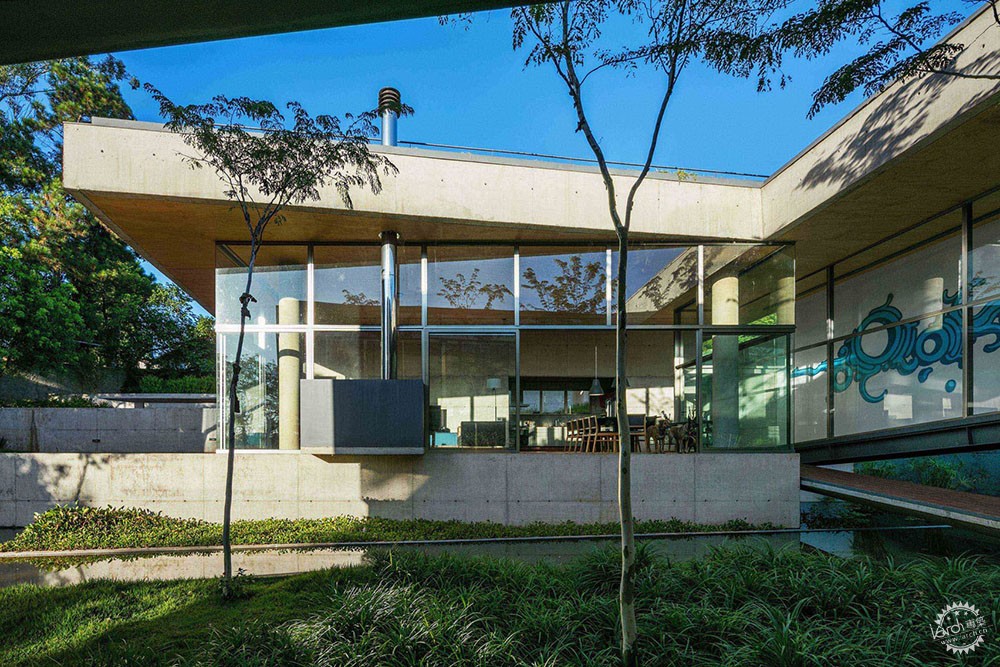
坡道从最低层的下面开始,在地面上方升起,形成进入房子的遮蔽的入口。然后,斜坡穿过第一个庭院,越过蜿蜒的游泳池,进入开放式的生活空间和厨房。
从厨房开始,它由通向前面的高架,到达卧室。厨房两旁的一对楼梯相继穿过住宅。
The ramp begins outside underneath the lowest level, which is raised above the ground to create a sheltered entrance into the house. The slope then crosses through the first courtyard, over a snaking pool, into the open-plan living and kitchen.
From here, it turns back on itself to lead to the elevated block at the front, where the bedrooms are located. A pair of staircases flanking the kitchen continue the route through the residence.
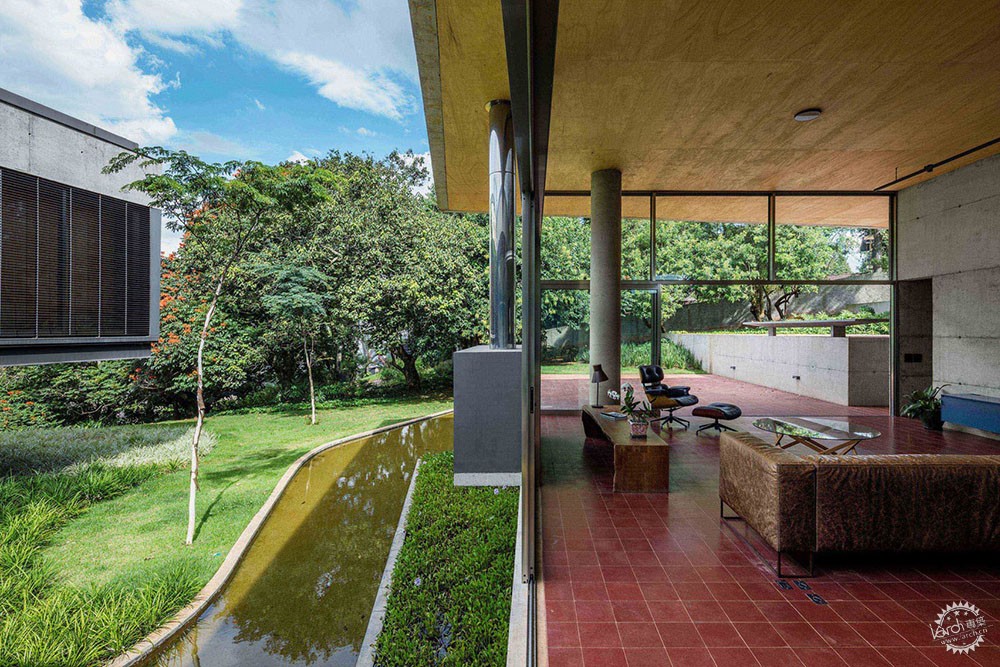
其中一条通向环绕第二院子的带顶的室外人行道。然后进入末端的客厅和音乐室。
One leads up to a covered outdoor walkway that wraps around the second yard area. Access to the final block, occupied by a living room and a music room, is provided from here.
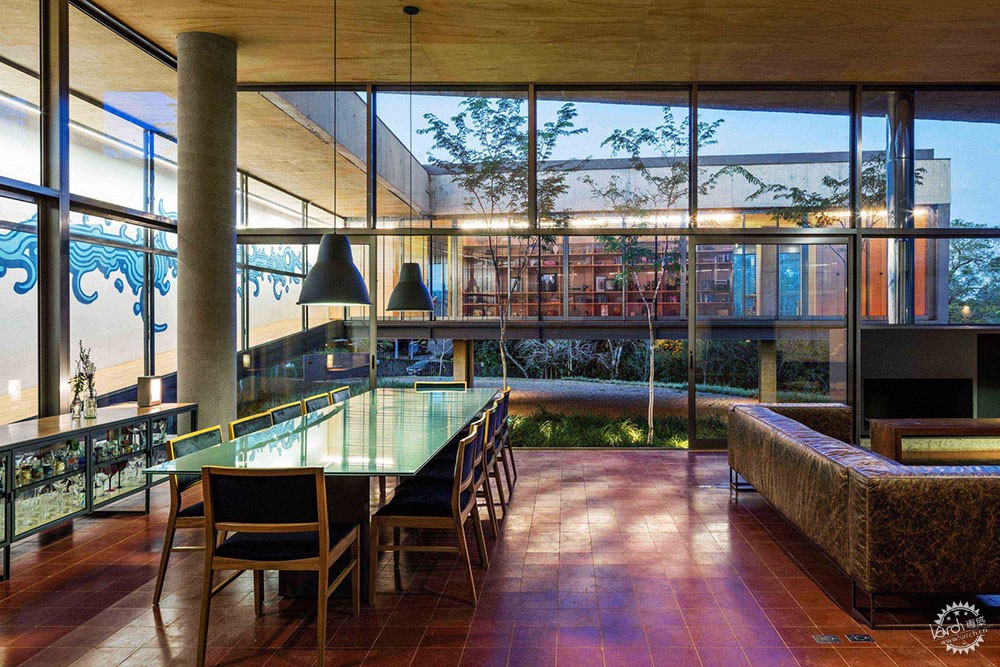
在另一边,第二个楼梯连接到室外露台,那里设置着游泳池和长凳,旁边覆盖着绿色的植被。露台上形成了中间平台之间的的花园,同时可以通往屋顶的上层。
On the other side, the second staircase links to an outdoor patio featuring a swimming pool and a long bench, with vegetation planted beside. The terrace forms the middle platform between a lower level adjoining a garden, and an upper level that provides access to the roof.
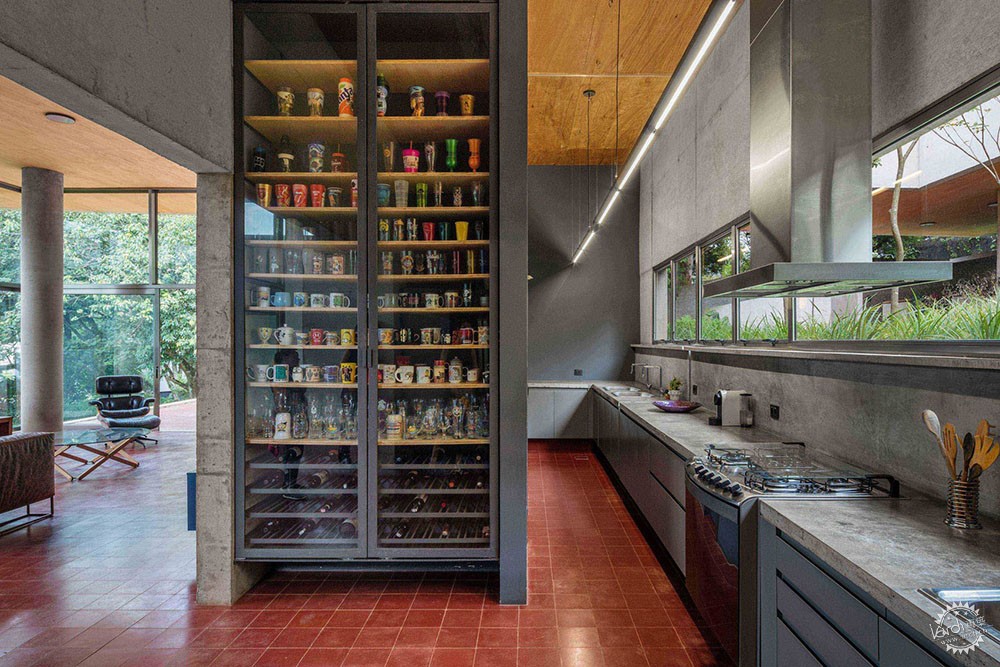
像兵马俑一样的瓷砖覆盖着室外露台的地板,并延伸向内部。Una Arquitetos事务所采用后拆内饰,让混凝土墙和木天花板暴露着,彰显出住宅的现代风格。
厨房的设备是混凝土的,而毗邻的休息室和餐厅的家具使用了深色的皮革、木头和玻璃制成。处处彰显着20世纪初的美学元素。
Terracotta-like tiles cover the floors of the outdoor patios and continue inside. Una Arquitetos used a stripped-back palette for the interior to reflect the modern style of the residence, leaving the concrete walls and wooden ceiling exposed.
Fittings in the kitchen are concrete, while furnishings in the adjoining lounge and dining room come in dark leather, wood and glass – also reminiscent of the early 20th-century aesthetic.
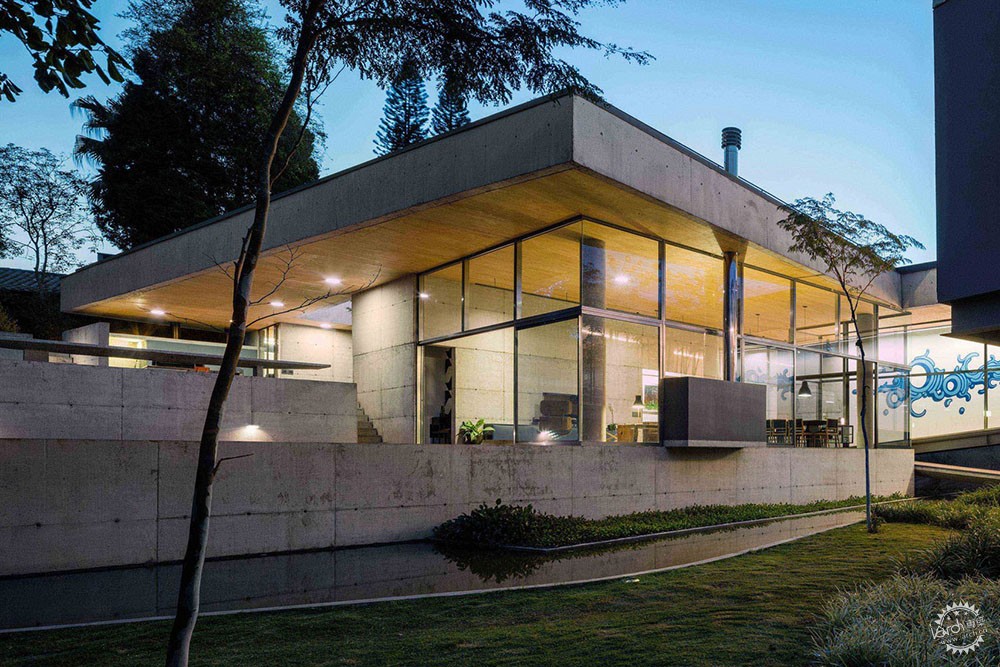
同样在巴西,MK27建筑事务所设计了一座类似的顶部带有巨大草地的混凝土房屋。
Also in Brazil, architecture firm Studio MK27 completed a concrete house that is similarly topped with a monumental grass roof.
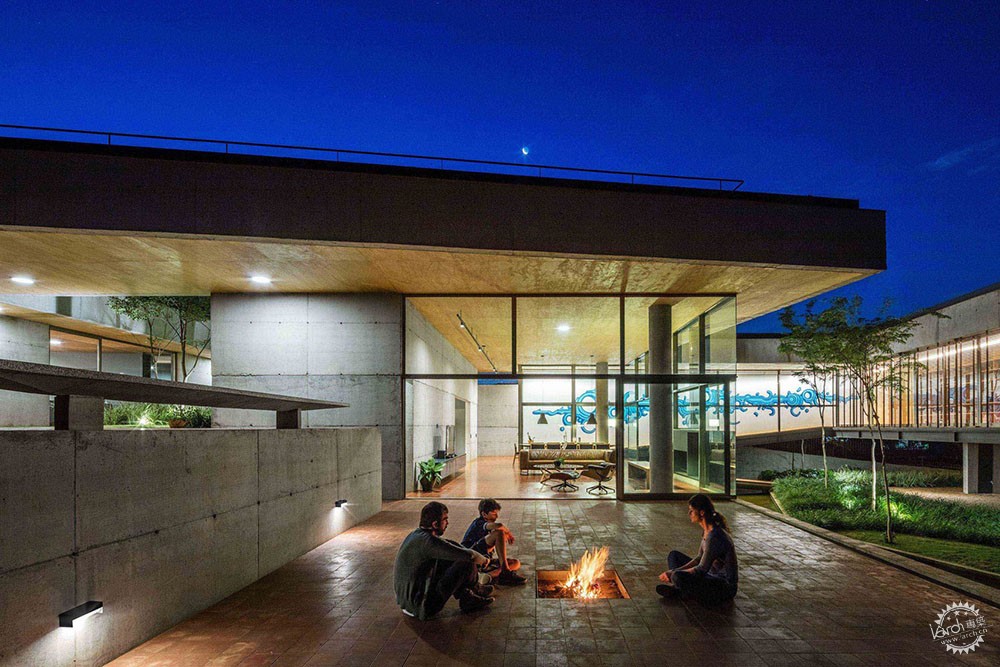
而其他最近在该国建成的住宅则使用了完全不同的材料和色调,例如Bloco Arquitetos事务所的白色住宅,还有Vilela Florez设计的覆盖着人字形竹子的住宅。
摄影:Nelson Kon;顶部照片:Bebete Viegas
Other recently finished residences in the country feature a starkly different material palette, including an all-white house by Bloco Arquitetos and a residence by Vilela Florez covered in chevron-patterned bamboo.
Photography is by Nelson Kon. Top photograph is by Bebete Viegas.
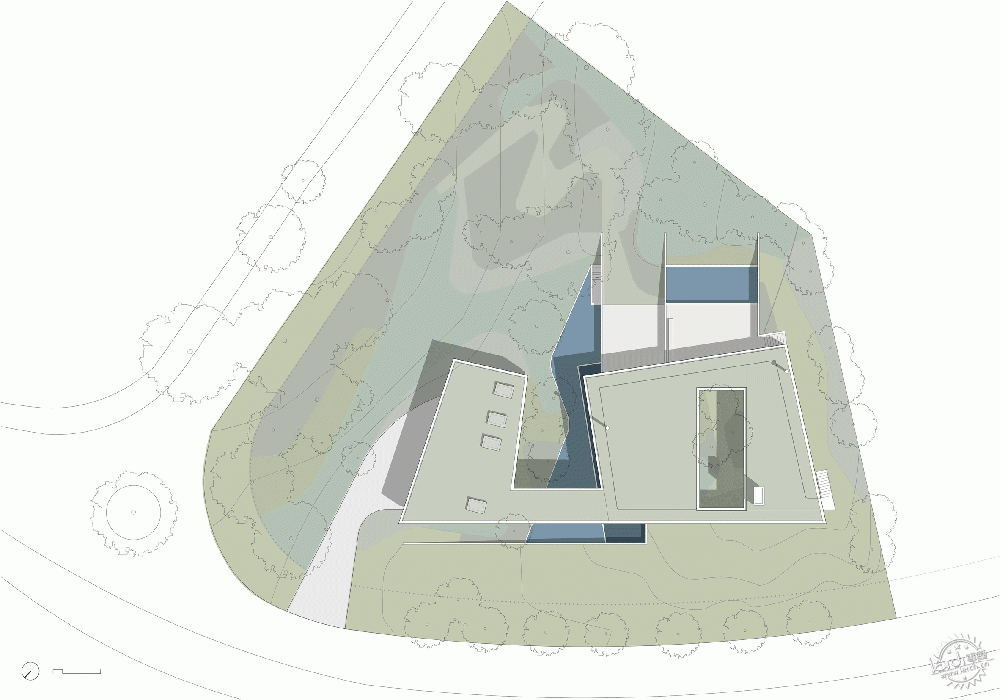
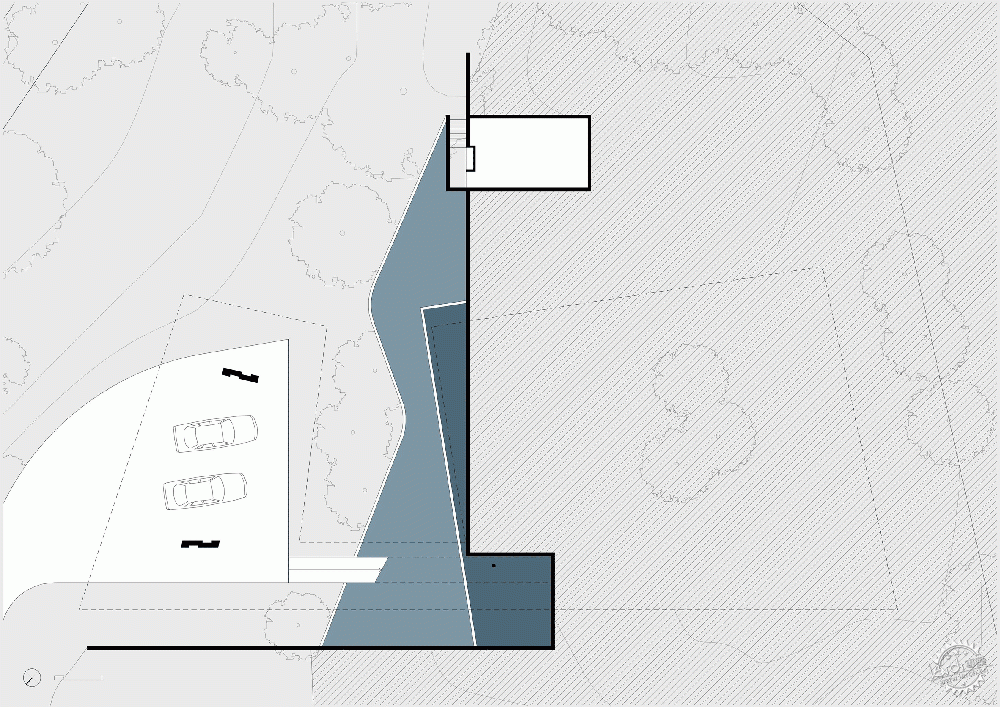
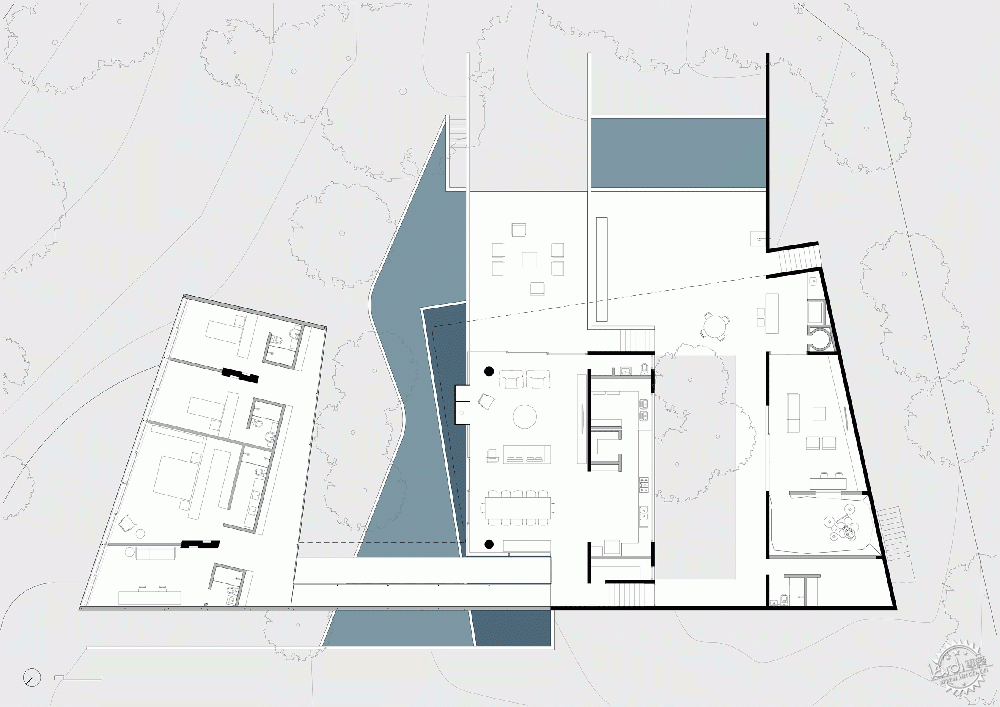

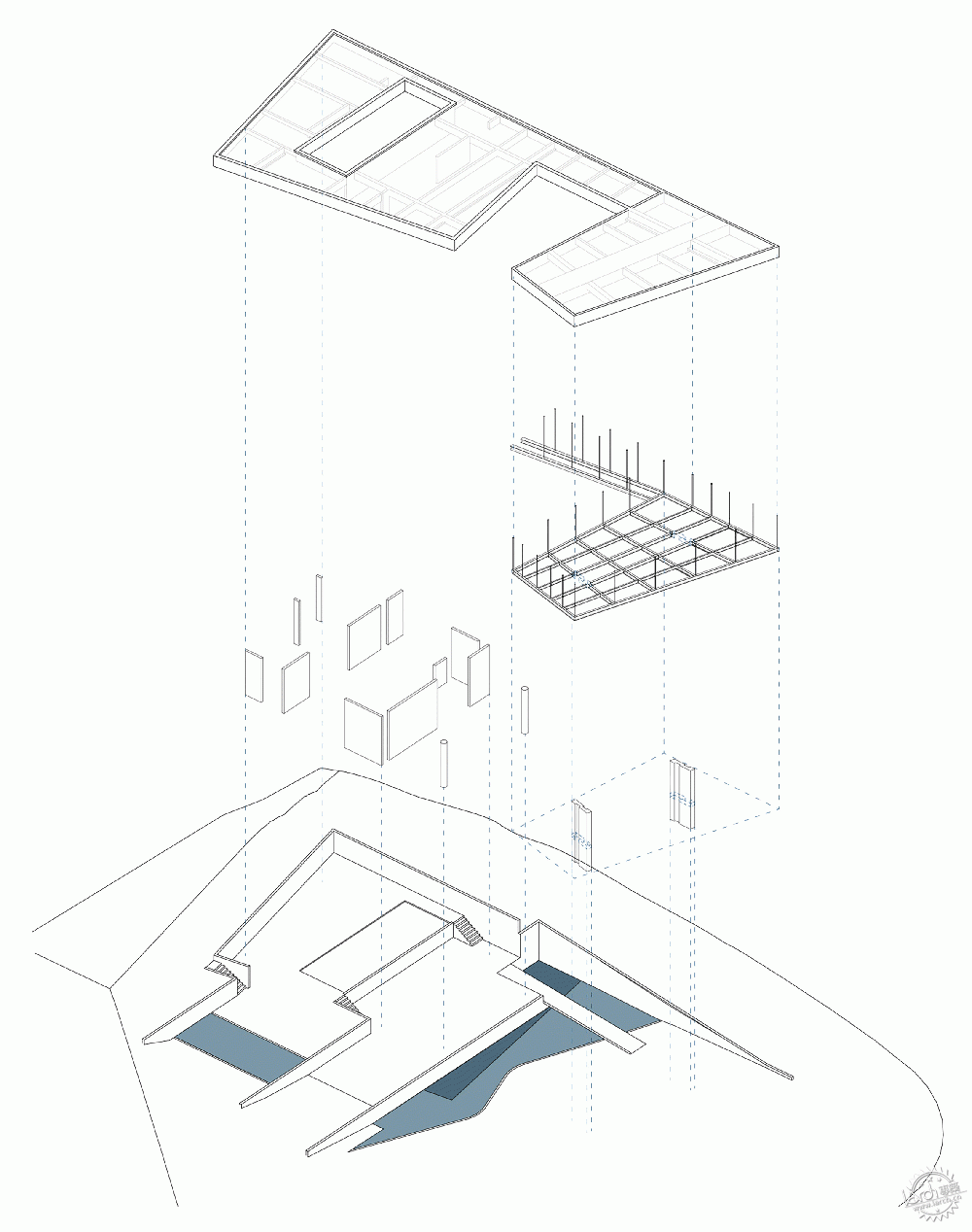
项目信息:
项目设计:Cristiane muniz, Fábio valentim, Fernanda barbara, Fernando viégas
设计团队:Carlos Faccio, Eduardo Martorelli, Henrique te Winkel, Hugo Bellini, Julia Jabur Zemella, Marie Lartigue, Marta Onofre, Naiara Hirota, Rodrigo Carvalho
地形测绘:Projecto
打孔:Ação Engenharia
结构工程:Companhia de Projetos
水电工程:Zamaro
照明设计:Lux Projetos
防水:PROASSP
景观设计:Soma
灌溉系统:Irrigar
隔音设计:Acústica Design
窗框设计:JMar
花园设计:Doering paisagismo
石墨材料:Zezão
建造商:F2 Engenharia
Project credits:
Design: Cristiane muniz, Fábio valentim, Fernanda barbara, Fernando viégas
Design team: Carlos Faccio, Eduardo Martorelli, Henrique te Winkel, Hugo Bellini, Julia Jabur Zemella, Marie Lartigue, Marta Onofre, Naiara Hirota, Rodrigo Carvalho
Topographic survey: Projecto
Drilling: Ação Engenharia
Structural engineering: Companhia de Projetos
Hydraulic and electrical engineering: Zamaro
Lighting design: Lux Projetos
Waterproofing: PROASSP
Landscaping: Soma
Irrigation: Irrigar
Acoustics: Acústica Design
Window frames: JMar
Gardens: Doering paisagismo
Grafite: Zezão
Construction: F2 Engenharia
|
|
